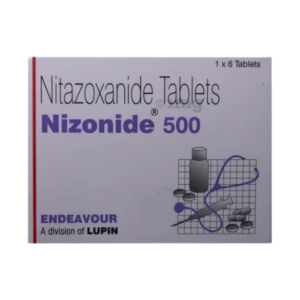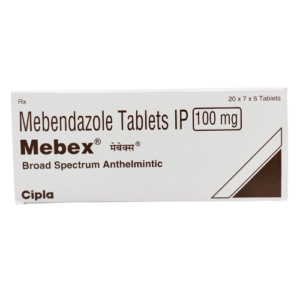Description
Introduction to Fenbendazole
Fenbendazole is a broad-spectrum anthelmintic (anti-parasitic) medication widely used in veterinary medicine to treat a variety of parasitic infections in animals. Primarily utilized for its efficacy against gastrointestinal worms, Fenbendazole has gained attention for its potential applications in human health, especially in alternative cancer treatments. This article delves into Fenbendazole 500mg, its uses, benefits, mechanisms of action, potential side effects, and considerations for use.
What is Fenbendazole?
Fenbendazole belongs to the benzimidazole class of compounds, a category known for their effectiveness against a wide range of parasitic infections. It is available in several forms, including powders, granules, and tablets. The 500mg dosage is a common strength used for both animals and, increasingly, in human health contexts.
How Does Fenbendazole Work?
Fenbendazole works by inhibiting the energy metabolism of parasites. It binds to the beta-tubulin subunit of the parasite’s microtubules, disrupting their formation and function. This leads to the death of the parasites and is particularly effective against roundworms, hookworms, whipworms, and certain protozoa.
Mechanism of Action
- Inhibition of Microtubule Formation: Fenbendazole binds to beta-tubulin, preventing the polymerization into microtubules, which are essential for cell division and function.
- Energy Depletion: By disrupting cellular structure, Fenbendazole impairs the energy production of the parasite, leading to its eventual death.
- Immune System Modulation: Some studies suggest that Fenbendazole may enhance the host’s immune response, helping to combat infections more effectively.
Common Uses of Fenbendazole
Veterinary Applications
Fenbendazole is primarily used in veterinary medicine for:
- Treatment of Gastrointestinal Parasites: It is effective against various intestinal worms in dogs, cats, cattle, sheep, and other livestock.
- Control of Lungworms: Fenbendazole can be used to treat infections in the lungs caused by certain parasites.
- Preventative Measures: Many veterinarians recommend Fenbendazole as part of a regular deworming schedule to prevent parasitic infections.
Human Health Applications
Although Fenbendazole is not approved by the FDA for human use, it has been studied for its potential benefits in:
- Cancer Treatment: Some anecdotal reports and preliminary studies suggest that Fenbendazole may have anti-cancer properties. It is thought to inhibit cancer cell growth and promote apoptosis (programmed cell death) in certain types of tumors.
- Alternative Medicine: Fenbendazole has gained popularity among alternative medicine practitioners and patients looking for non-traditional therapies. However, more rigorous scientific research is needed to substantiate these claims.
Dosage and Administration
The recommended dosage of Fenbendazole varies based on the specific application and the type of parasite being treated.
Veterinary Use
For dogs and cats, the typical dosage ranges from 150mg to 50mg per kg of body weight, administered once daily for three consecutive days. Always consult a veterinarian for specific dosing recommendations tailored to your pet’s needs.
Human Use
For those considering Fenbendazole for off-label human use, a common dosage cited in anecdotal reports is 500mg taken once or twice daily, often alongside food to enhance absorption. However, it is crucial to consult a healthcare provider before starting any treatment.
Alternative Dosage Of Fenbendazole : Fenbendazole 1000Mg
Potential Side Effects
While Fenbendazole is generally considered safe for use in both animals and humans, some individuals may experience side effects. Common side effects may include:
- Gastrointestinal Upset: Nausea, vomiting, diarrhea, and abdominal discomfort are possible, especially if taken on an empty stomach.
- Allergic Reactions: Some individuals may develop allergic reactions, such as rash, itching, or swelling.
- Liver Function Changes: Rarely, Fenbendazole can affect liver enzyme levels, so monitoring liver function may be necessary during prolonged use.
Precautions and Contraindications
Who Should Avoid Fenbendazole?
- Pregnant or Nursing Animals: Consult a veterinarian before administering Fenbendazole to pregnant or nursing animals, as its effects on fetal development and lactation are not well-studied.
- Individuals with Allergies: Those with known allergies to benzimidazole compounds should avoid using Fenbendazole.
- Liver or Kidney Disease: People with existing liver or kidney conditions should exercise caution and consult a healthcare professional before use.
Fenbendazole in Research
While anecdotal evidence supports Fenbendazole’s use in treating cancer, scientific research is still limited. Some studies have indicated potential mechanisms through which Fenbendazole may inhibit tumor growth, but more comprehensive clinical trials are necessary to confirm these effects.
Recent Studies
- Anticancer Properties: Research exploring the effects of Fenbendazole on various cancer cell lines has shown promise, with some studies indicating a reduction in cell viability and proliferation in vitro.
- Combination Therapy: Some investigations are examining the efficacy of Fenbendazole when used alongside traditional cancer treatments, such as chemotherapy and radiation, to enhance therapeutic outcomes.
Conclusion
Fenbendazole 500mg presents an intriguing option for treating parasitic infections in animals and has emerged as a topic of interest in alternative health circles for potential human applications, particularly in cancer treatment. However, while its use in veterinary medicine is well-established, human applications remain largely experimental.
Important Considerations
If you are considering Fenbendazole for either yourself or your pet, it is essential to:
- Consult a Healthcare Provider or Veterinarian: Ensure that you receive proper guidance regarding dosage, potential side effects, and monitoring requirements.
- Stay Informed: Keep up with ongoing research and emerging findings related to Fenbendazole and its applications.
- Weigh the Risks and Benefits: Assess the potential benefits against the risks and uncertainties, particularly when considering off-label use in humans.
Fenbendazole’s potential merits further exploration, but it should not replace conventional treatments without thorough professional guidance. As research continues to unfold, we may better understand Fenbendazole’s place in both veterinary and human medicine.








Reviews
There are no reviews yet.